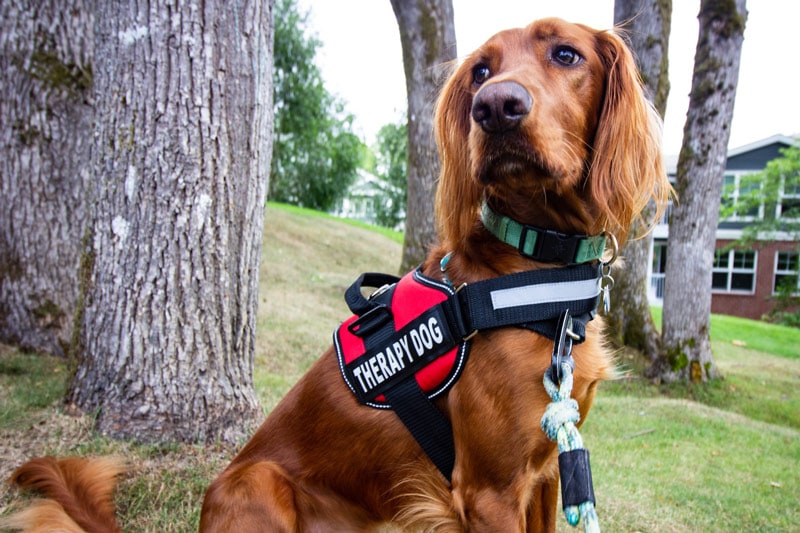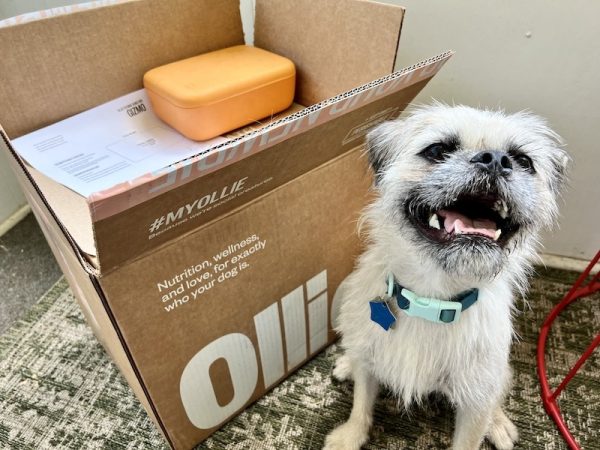In this article
Dogs are known as man’s best friend for a good reason. Dogs are loyal and loving and console you during times of sadness or stress. Most dogs are good at picking up on your emotions and are in tune with your feelings. Dogs can also become therapy dogs, where they work in hospitals and other facilities to help patients by lifting spirits and providing comfort.
Studies show dog therapy improves mental health and generally helps with a patient’s overall mood, which brings us to this question: do therapy dogs in hospitals help patients? Yes, therapy dogs in hospitals indeed help patients.

How Common Are Therapy Dogs in Hospitals?
It’s quite common these days to see therapy dogs in hospitals all over the country. Therapy dogs will have their own ID badge attached to their collar, complete with their name and a photo. How cute is that?
With the ongoing, mounting evidence proving a visit from a therapy dog in a hospital is beneficial to a patient, more and more hospitals are on board for such therapy.
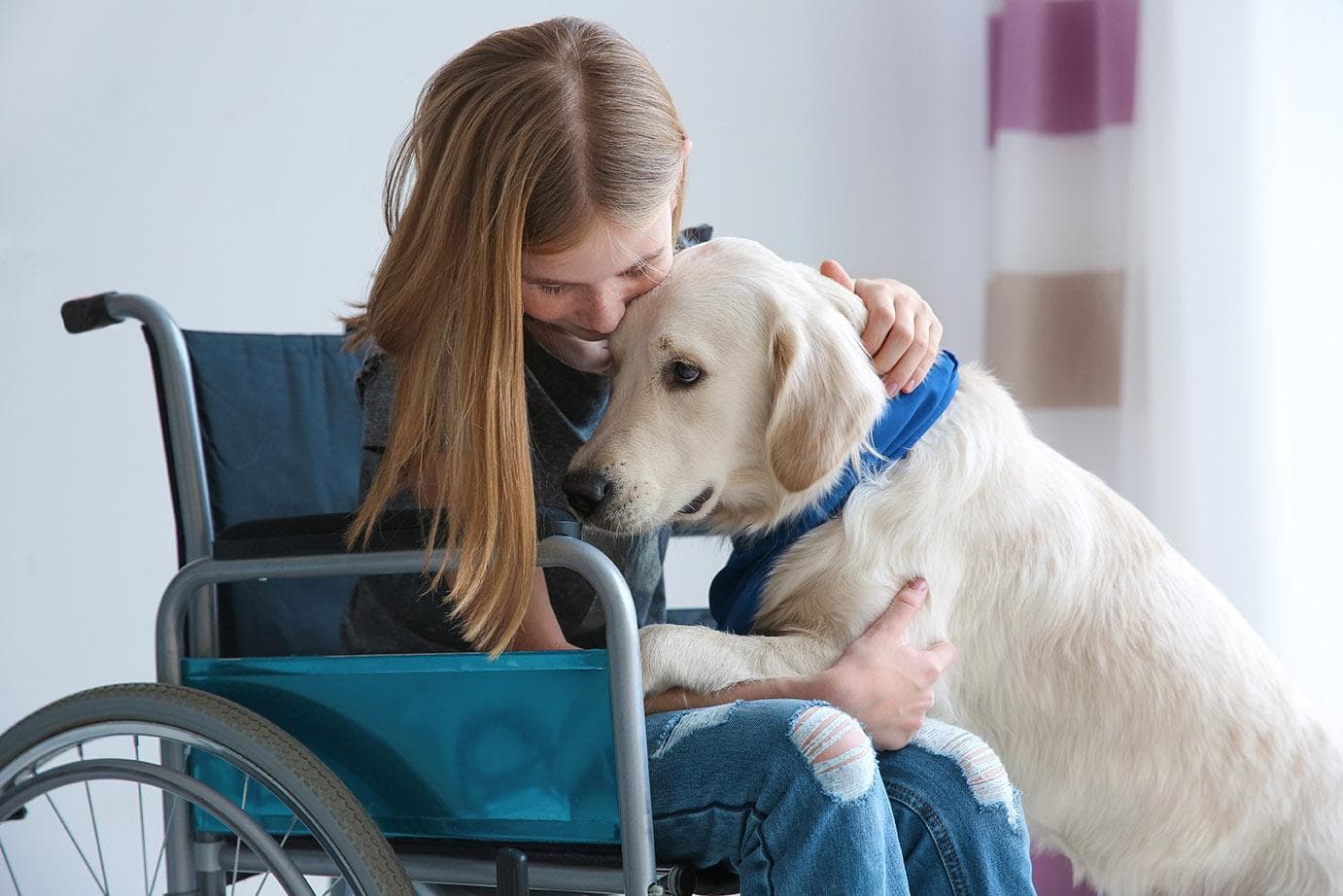
How Do Therapy Dogs Help Patients in Hospitals?
There are many ways therapy dogs help patients in hospitals. Patients in hospitals are coping with an injury or illness that put them in the hospital in the first place, and that alone brings anxiety and stress. Therapy dogs help lower blood pressure, reduce stress and anxiety, and promote healing in hospital patients.
When a therapy dog enters a patient’s room, the patient’s spirit and overall emotional state changes for the better. Therapy dogs also provide comfort during tests and other procedures to help the patent cope.
Do Therapy Dogs Pose Health Risks to Patients in Hospitals?
Hospitals have strict policies regarding sanitation practices to keep patients, staff, and visitors healthy and avoid infections. To avoid such an event, therapy dogs must undergo thorough health checks before being allowed into a hospital. They must be up-to-date on all vaccines and be clean. A bath and brush are a must before a dog enters a hospital to keep pet dander and other allergens at bay.
Not just any dog can walk into a hospital. Before a dog can begin helping patients, a certification must be obtained through a reputable national organization or be approved by the hospital beforehand. Therapy dogs differ from service dogs, as service dogs are allowed in any type of facility or public place. Service dogs are trained to do specific tasks for a disabled person, whereas a therapy dog provides comfort and love.
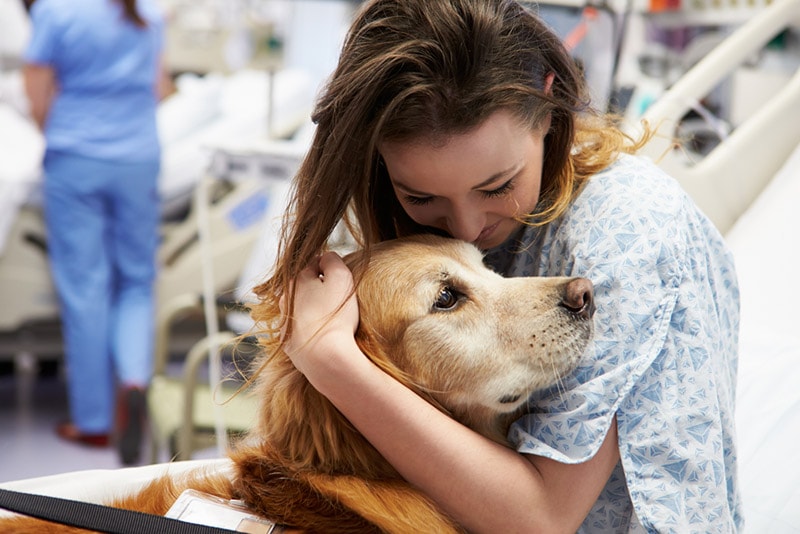
How Do Dogs Become Therapy Dogs?
Many volunteer programs and organizations offer testing and evaluations that certify therapy dogs. One such program is the Canine Good Citizen Test. While therapy dogs do not generally require certification, they should at least pass this exam to prove they are obedient, well-trained, well-behaved, understand basic commands, and have a gentle and calm temperament. They should also be nonreactive to noises and be comfortable around strangers.
Are There Different Types of Therapy Dogs?
There are three types of therapy dogs: facility therapy dogs, animal-assisted therapy dogs, and therapeutic visitation dogs, which are the most common.
Facility therapy dogs live in care facilities and are taken care of by the facility itself. These dogs provide love, comfort, and company to those living in nursing or retirement homes with dementia, Alzheimer’s, or other mental illnesses.
Animal-assisted therapy dogs require special training to assist occupational and physical therapists. They are trained to improve patients’ motor skills, limb mobility, and even help patients relearn pet skills so they are better prepared for pet care when they return home to their own pets.
Therapeutic visitation dogs are the most common type of therapy dog. These dogs are mostly the ones you’ll see in hospitals. They are normally family pets that volunteer with their owners, going from room to room to provide love and affection to patients. These dogs lift spirits and help patients cope with the anxiety and stress of being in the hospital.
If you’re interested in volunteering with your canine kiddo (handlers need training, too!), you can contact any reputable therapy dog-training program near you for more details.
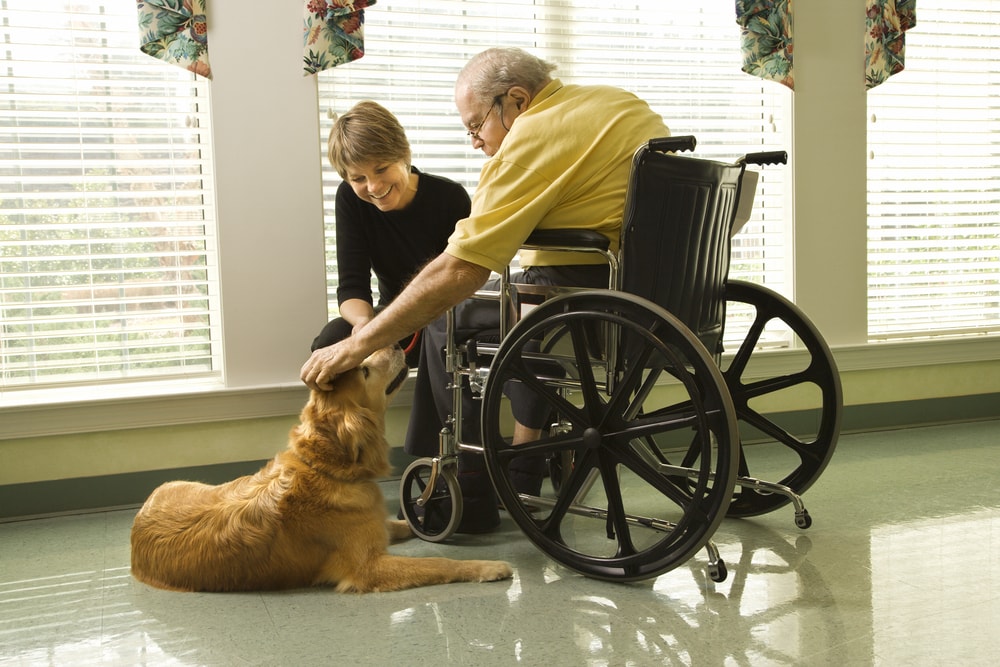

Summing Up
Dogs are incredible animals that offer more than just companionship. Therapy dogs help reduce stress and anxiety and bring an overwhelming sense of calmness and happiness to hospital patients, proving that a human-animal bond exists.
In some cases, a patient’s hospital stay may be shortened due to visits from a therapy dog, as these visits can help patients gain the confidence and determination to get better. Therapy dogs provide a wonderful service and should be recognized for what they do.
Featured Image Credit: Ryan Stone, Unsplash
